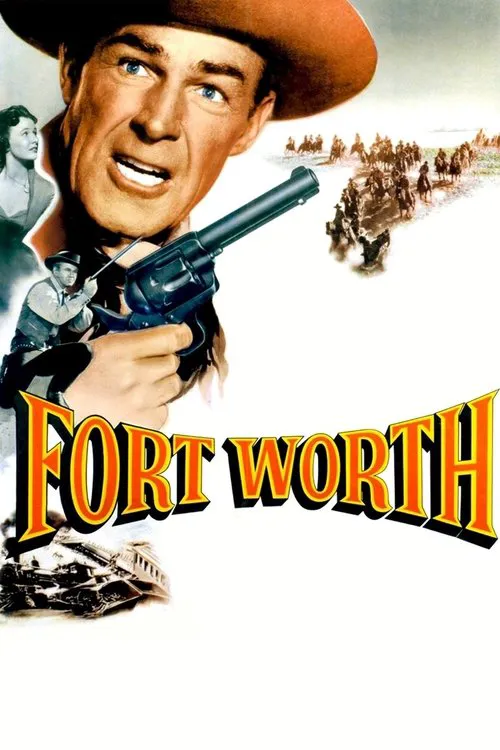Fort Worth

Plot
Ned Britt, a former gunfighter, rode back into town on the dusty streets of Fort Worth, the same streets he once frequented as a notorious outlaw before the Civil War. With time on his side and a new sense of purpose, he had long since turned his back on his gunslinger days and sought redemption in the quiet life of journalism. Britt arrived at the offices of the local Fort Worth newspaper, where he was met by his friend, editor James. James, noticing Britt's return, welcomed him warmly and introduced him to the editor of the rival newspaper, the "Daily Sentinel", a man known for his ruthless ambition and cunning tactics, Rufus "The King" Kingston. Rufus's newspaper had become a dominant force in Fort Worth, and its editorials often served as an instrument to further Rufus's interests, spreading fear and control over the community. James saw an opportunity and invited Britt to help run the newspaper as associate editor, and he accepted on one condition - that the paper would continue to remain steadfast in opposing Rufus and the corrupt influences that had taken hold of Fort Worth. As associate editor, Britt immersed himself in the world of newspaper writing and editing, where he applied his sharp wit, insight into human nature, and keen eye for storytelling. Fort Worth in this period was a place where old and new worlds collided - the former cowboys and Native Americans still held sway, while the newcomers who had staked their claims to the land sought to bring about change. With Britt by his side, James began to publish exposés about the corrupt businessmen and the King's schemes for control, using the paper to fight for truth, justice, and the rights of the marginalized. As the rival newspaper and its ruthless owner continued their campaign of domination, Britt and James worked tirelessly to outdo them, employing the full range of journalistic tools to expose their nefarious deeds. From investigating the corrupt railroad and land deal, where Rufus stood to gain a significant fortune, to highlighting the plight of local ranchers who had seen their land seized by powerful land speculators, Britt's articles helped galvanize public opinion and push back against the corrupt forces that threatened the town. However, the stakes of publishing truth were increasingly high as Rufus and his allies retaliated by launching vicious counterattacks against James and his newspaper. Britt, now a respected voice in Fort Worth, stood his ground, knowing that the newspaper's mission to tell the stories that needed to be told was a sacred trust. Britt and James faced numerous threats and harassment attempts from Rufus, who sought to silence the newspaper and crush the spirit of resistance it had become. Britt, having lived on the streets and witnessed his share of cruelty and violence, recognized the danger signs of an escalating situation. He decided that it was time to confront Rufus and bring the war of words to a head, and in a showdown between the associate editor of "The Fort Worth Daily" and the King himself, Britt chose to rely on wit, courage, and the might of the pen to expose the ruthless schemes of Rufus and bring justice to the people of Fort Worth. As Rufus's grip on the town tightens and his control begins to slip, Britt emerges as a powerful voice for change and a symbol of hope for those who had thought their voice would not be heard. Britt's unwavering commitment to the truth helped the people of Fort Worth resist the tyranny of Rufus and his followers, and he played a pivotal role in cementing a new beginning in the town's history. In this gripping showdown, Ned Britt showed that redemption was possible for those willing to change their paths and that with courage, conviction, and the power of words, anyone could challenge the status quo and fight for what was right. As Fort Worth moved forward into a brighter new era, one thing was clear: Ned Britt, the former outlaw turned journalist, would forever be a champion for the oppressed and the forgotten.
Reviews
Recommendations



